Building a Future-Ready Workforce Through ‘Learning In the Flow-of-Work’.
)
In today’s rapidly evolving business environment and amidst a skills shortage, developing a Future-Ready workforce is essential. Traditional training methods, which require employees to step away from their daily tasks for structured, in-person sessions, often fall short in meeting the demands of daily work, creating both immediate and long-term capacity challenges. With the rise of hybrid and remote work, lean operational models, technological advancements, and the need for rapid upskilling and reskilling, there is an increasing expectation for learning solutions that are accessible anytime and anywhere.
The solution is to build capability by "learning in the flow of work." This innovative approach integrates learning directly into employees' daily activities, allowing them to acquire new skills and knowledge precisely when needed. By aligning skill development with real job requirements, in flow of work learning promotes continuous learning and adaptability, effectively meeting the modern demands of the business environment.
This industry-leading model highlights that individuals gain 70% of their knowledge through on-the-job experience, 20% through interactions with others, and just 10% from formal professional development, emphasising the effectiveness of hands-on learning. In today’s era of rapid change and digital transformation, integrating learning into daily work is increasingly vital. The World Economic Forum’s Future of Jobs Report (Di Battista et al., 2023) underscores this need, noting that approximately 40% of workers will require reskilling within six months. Moreover, 94% of business leaders now expect employees to learn new skills on the job, up from 65% in 2018. Additionally, 81% of companies view investing in learning and on-the-job training as a critical strategy for achieving their business objectives. This training and assessment approach lays the foundations for effectively measuring learning impact and defining the tangible Return on Investment (ROI).
In this article we outline some of the mounting evidence behind the benefits of ‘learning in the flow of work’ as a dynamic and practical solution for building a skilled, adaptable workforce prepared for future challenges.
Learning in the flow of work is what people want. LinkedIn conducted a survey involving over 4,000 L&D and business professionals to explore how workplace learning can be enhanced (LinkedIn Learning, 2018). The top challenge identified was a lack of time, with most respondents citing "getting employees to make more time for learning" as their primary concern. Additionally, among the learners surveyed, 58% expressed a preference for learning at their own pace, while 49% favoured integrating learning into their daily work activities.
Learning in the flow of work enhances learning efficiency. Learning integrated into the workflow allows employees to apply new skills immediately, leading to a more efficient and engaging learning experience (Bersin & Zao-Saunders, 2019). Everyday work presents many opportunities to learn and to apply learning. Small chunks of learning time can be built into even the busiest work schedules. The approach encourages a community of learning where colleagues ‘contribute actively, expertly, and kindly’.
In-work development opportunities increase staff retention, internal mobility and skill retention. According to McKinsey & Company (2023), 80% of job/role changes involve moving to new employers. Redeployment opportunities within organisations gives employees the change to put learning into practice, directly. Moreover, employees who apply learning immediately in their roles are more likely to retain and effectively use new skills. This direct application ensures that learning is relevant and immediately useful, leading to more effective skill utilisation.
Customised Learning Solutions to Unlock Capability: Training should be customized and personalised, as a one-size-fits-all approach does not accommodate diverse learning styles and roles within an organisation. Tailoring learning experiences to address the specific needs of both employees and the organisation enables these adaptive solutions to unlock organisation’s capability.
Employee development is a critical factor in organisational success. Gallup research (Desimone, 2019) has found that organisations that have made a strategic investment in employee development report 11% greater profitability and are twice as likely to retain their employees. When learning is directly related to job tasks, employees are more likely to be engaged and motivated, contributing to a more dynamic and productive work environment. High-achieving people (the ones who can grow the organisation) typically seek development opportunities. In addition to this, a study competed by an independent research firm in late 2023, found that out of 1,013 EHS leaders, 47% have identified Skills gaps and low awareness as a leading challenge when it comes to moving EHS programs forward (Focus Network, 2024 Global EHS Readiness Report)
In conclusion, 'learning in the flow of work' provides several key advantages over traditional training methods. It enhances employee engagement, improves knowledge retention, boosts skill application, and reduces downtime. This approach also promotes continuous improvement, which in turn drives greater productivity and profitability. By integrating learning into daily tasks, organisations can effectively measure the ROI. Embracing this method is a strategic move for organisations aiming to thrive in today’s fast-paced business environment.
References
Johnson, S. J., Blackman, D. A., & Buick, F. (2018). The 70: 20: 10 framework and the transfer of learning. Human Resource Development Quarterly, 29(4), 383-402.
Di Battista, A., Grayling, S., Hasselaar, E., Leopold, T., Li, R., Rayner, M., & Zahidi, S. (2023, May). Future of jobs report 2023. In World Economic Forum, Geneva, Switzerland. https://www. weforum. org/reports/the-future-of-jobs-report-2023.
LinkedIn Learning. (2018). Workplace learning report 2018. LinkedIn Learning.
Bersin, J., & Zao-Sanders, M. (2019). Making learning a part of everyday work. Harvard business review, 19.
McKinsey & Company. (202). The skills revolution and the future of learning and earning. World Government Summit Desimone, R. (2019) What high-performance workplaces do differently. Gallup.

